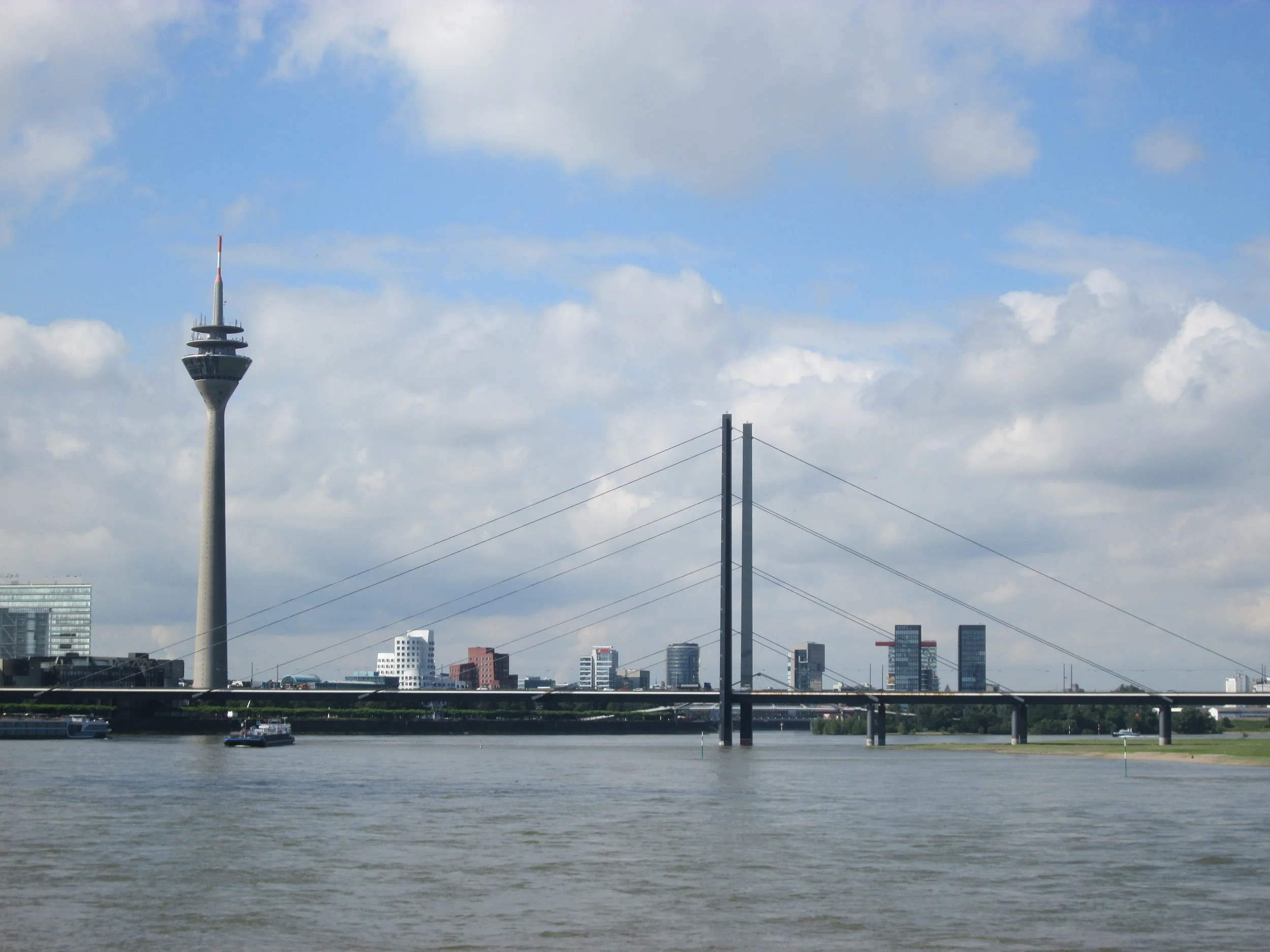Das Ende vom Ende
Olivia Wilkins
One month ago, Alex and I (with the help of my Mom) brought Günther to the United States of America for the first time. Between moving out of our home in Köln and making our trans-Atlantic journey, we stayed in Düsseldorf, the capital of NRW which lies under an hour north up the Rhein from Köln by train.
My first impression of Düsseldorf was not positive. I was sad to leave our apartment on Marienstraße in Ehrenfeld in Köln. Of our five days in Düsseldorf, the first three were rainy and cold. Die Züge were more crowded than those in Köln, and die Straßen dirtier too. Das ende vom Ende in Deutschland von mir was bleak.
After several days of das Mitnahmen and re-packing unsere Koffer, das Wetter finally cleared up enough on Sunday, July 3, to venture more than a block from our hotel. We took the train about 20 minutes from Düsseldorf Hauptbahnhof to Neandertal—the valley in Deutschland where Neanderthal 1 (the first specimen of Homo neanderthalensis) was discovered.
The Neander Valley
Neanderthal 1 was found in a cave in das Neandertal by limestone miners in the 1850s. At that time, the word Tal was spelled Thal, giving way to the fossil being named with an "h" whereas contemporary spellings of the valley are without. Although it is unknown how Neanderthal 1 came to rest in the cave where he was found, it is widely thought (according to das Neanderthal-Museum) that he died elsewhere but was laid to rest under the cover of the limestone walls of the valley. Now, over 150 years later, Neanderthal 1's remains rest in a museum showcase.
Fossil fragments of Neanderthal 1
At das Neanderthal-Museum, we saw more than what's left of Neanderthal 1. We journeyed through an exhibit of evolution, learning about both the ancestors of and modern Homo sapiens. I found several things in particular interesting at the museum. One is that, while some scientists believe that human evolution was linear, many believe that it was much more complicated. For instance, there is evidence that the species Homo neanderthalensis and Homo erectus not only lived concurrently but perhaps even combatted each other. Some even think that Homo sapiens is a product of cross-breeding between the two ancient peoples.
Another interesting concept was that humans are the only species on Earth born premature, and this prematurity allows the head to pass through the birth canal. For human babies to be born at the same maturity level of other mammals (i.e. able to walk, able to communicate, etc.), they would have to incubate in their mother's womb for about twice as long.
The Neanderthal Museum
The following day, Monday, was our last full day in Deutschland. The exploration continued, but this time in die Altstadt. In the warm sun, Düsseldorf was much more welcoming.
Duesseldorf am Rhein
In die alte Stadt von Düsseldorf, we meandered through parks, saw Jäagerhof palace, visited Bärenland (ein Gummibärengeschäft), strolled along the Rhein, and enjoyed Döner and Spaghettieis one last time (at least for now). We had a last traditional meal for das Abendessen at eine Brauerei next to the river, where I enjoyed Weinerschnitzel and alkoholfreies Bier. The night couldn't have been more beautiful.
The next morning, Tuesday, July 5, the near-Perfekt year in Germany came to an end. Alex, my mom, Günther, and I headed to Düsseldorf Flughafen, where we caught a plane to Frankfurt am Main. In Frankfurt, excited to inspect his first-ever clean passport, the Border Control officer gave Güni his first passport stamp (under the table; the rest of us didn't receive stamps). During the trans-Atlantic flight, I had to hold back my tears. As sad as I was to leave Europa, I couldn't justify crying, especially when my two-month-old baby didn't cry during the entire flight.








